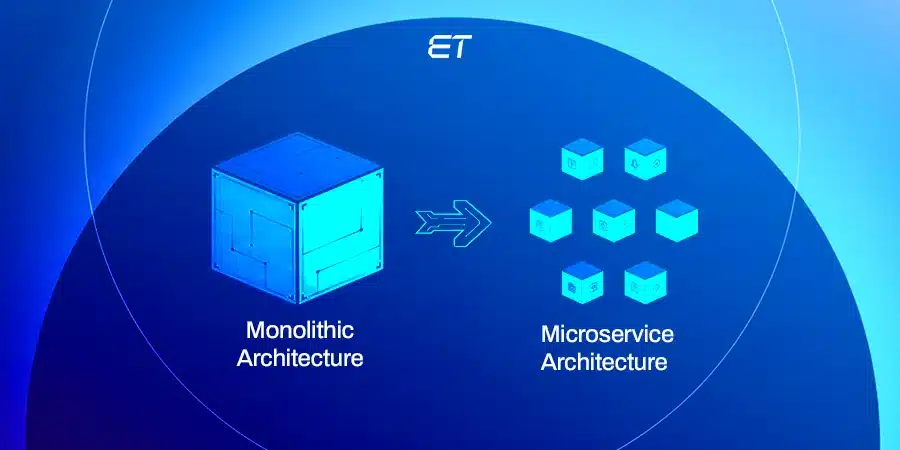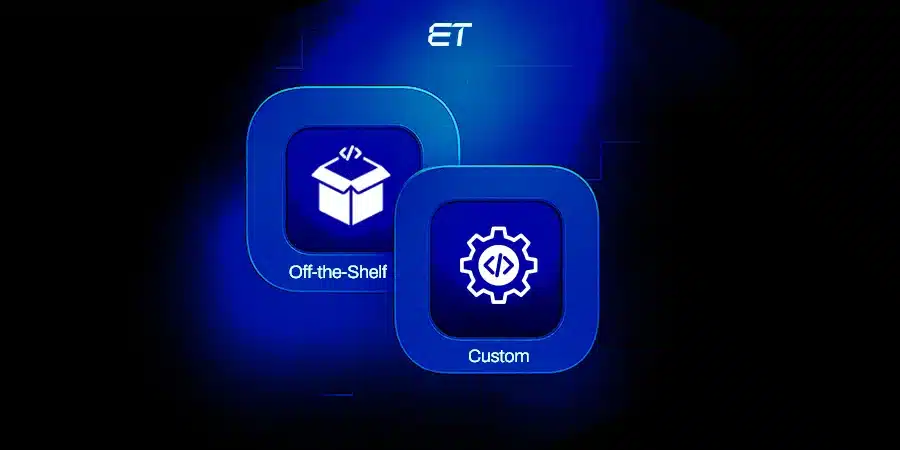
Top 10 Examples of Business Software – Grow Your Business with Top Pick
Remember the time when storing data was done manually? The data were maintained in a handwritten diary. Now, imagine applying those methods today. Running your business without technology, managing customer relationships with handwritten notes, tracking finances manually, or collaborating without digital tools.
Sounds chaotic, right?
Therefore, from tracking sales and managing finances to streamlining communication and improving collaboration, business software plays a crucial role in keeping a business’s operations smooth and efficient. However, with so many options available, should you choose a powerful CRM like Salesforce? A finance management tool like QuickBooks? Or an all-in-one productivity suite like Microsoft 365?
Well, we understand that different businesses have different needs. So, in this blog, we’ll explore the top 10 examples of business software that will help you stay competitive and scalable.
Build scalable, future-ready business software. Click to connect and transform your business today!
Top examples of Business Software
Selecting the right business software is crucial for improving productivity, efficiency, and overall business performance. Below, we have explored the top 10 examples of solutions that are impactful and you should leverage to streamline your operations, enhance collaboration, and improve decision-making.
| Sr. No. | Business Software | Rating (Out of 5) | Industry Use Cases |
| 1. | QuickBooks | 4.7 | Accounting, Small Businesses, Finance |
| 2. | Salesforce | 4.5 | Sales, CRM, Enterprises |
| 3. | Microsoft 365 | 4.6 | Corporate Productivity, Collaboration, Enterprise IT |
| 4. | Google Workspace | 4.6 | Remote Teams, Collaboration, Cloud Computing |
| 5. | NetSuite | 4.4 | ERP, Finance, Supply Chain, Enterprises |
| 6. | HubSpot | 4.5 | Marketing, Sales, Customer Service |
| 7. | Asana | 4.3 | Project Management, Task Tracking, Teams |
| 8. | Slack | 4.4 | Business Communication, IT, Remote Work |
| 9. | Zoom | 4.6 | Video Conferencing, Webinars, Corporate Meetings |
| 10. | FreshBooks | 4.5 | Accounting, Freelancers, Small Businesses |
1. QuickBooks
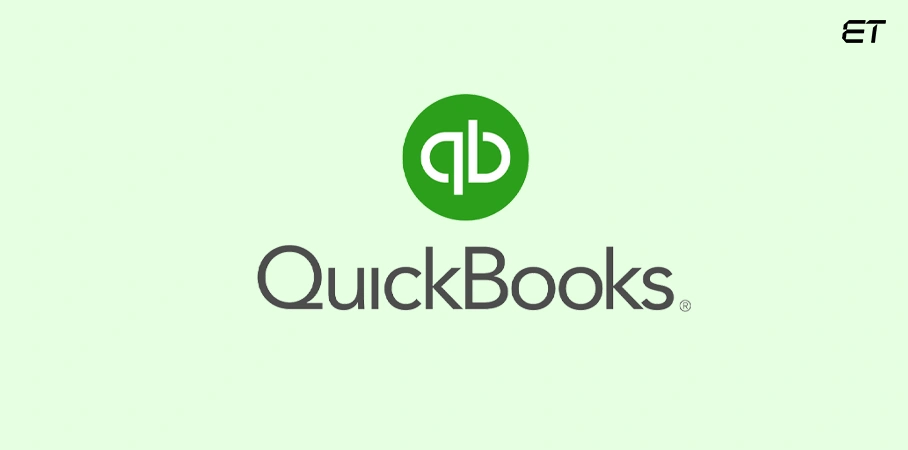
QuickBooks is one of the most widely used accounting and financial management software designed to help you keep track of your business financial transactions. It also assists in human resources management by managing payroll and employee records, and generating financial reports.
If you are a small business or a startup, managing finances can be a complex and time-consuming task for you. QuickBooks eliminates the need to hire an accountant for everyday financial management. This example of business software is designed to integrate seamlessly with banks, payment processors, and tax authorities, reducing manual effort and ensuring compliance with financial regulations.
Features of QuickBooks
- It automatically syncs with your bank accounts to categorize transactions.
- It creates professional invoices and accepts online payments.
- QuickBooks simplifies tax filing with automatic tax calculations.
- It ensures your employees get paid accurately and on time.
- It provides you with real-time insights into business performance.
Why Should You Use It?
- It reduces manual bookkeeping errors.
- It automates your recurring financial tasks, saving time.
- It ensures compliance with tax laws and regulations.
- It is perfect for small businesses, freelancers, and large enterprises.
Industries Using QuickBooks:
- Retail and E-commerce
- Freelancers and Small Businesses
- Consulting Firms
- Healthcare and Service-Based Businesses
2. Salesforce
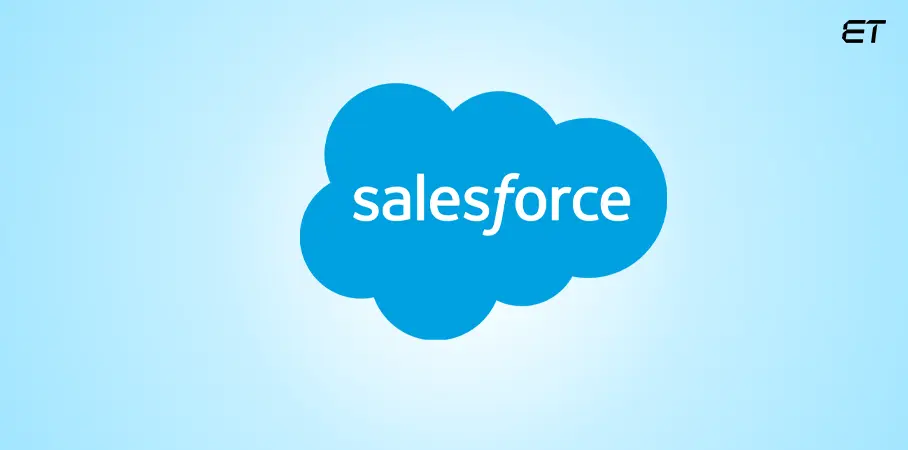
Salesforce is the most powerful software customer relationship management (CRM) tool that helps you manage customer interactions, sales pipelines, marketing automation, and customer service operations all in one centralized platform.
It gives your business a 360-degree view of your customers, helping your sales teams understand customer needs, personalize communication, and improve customer satisfaction. Additionally, Salesforce helps manage and track marketing campaigns, streamlining marketing tasks and enhancing customer interactions. Salesforce is one of the best examples of business software as you can manage customer data without the need for on-premise software installations.
Salesforce supports AI-powered features, such as Einstein Analytics, which provides predictive insights into customer behavior, helping you boost sales conversions and retention rates.
Features of Salesforce
- It stores customer details and tracks their interactions.
- It uses data to predict future sales trends.
- It helps you create and manage targeted campaigns.
- Salesforce enables you to handle customer queries effectively.
- It works with email, social media, and analytics tools.
Why Should You Use It?
- It enhances customer engagement with a 360-degree view of interactions.
- Salesforce improves your sales team’s productivity through AI-driven insights.
- It automates repetitive sales and marketing processes.
- It is ideal for small businesses and large enterprises.
Industries Using Salesforce:
- Banking and Financial Services
- Retail and E-commerce
- Healthcare and Pharmaceuticals
- Technology and IT Services
3. Microsoft 365
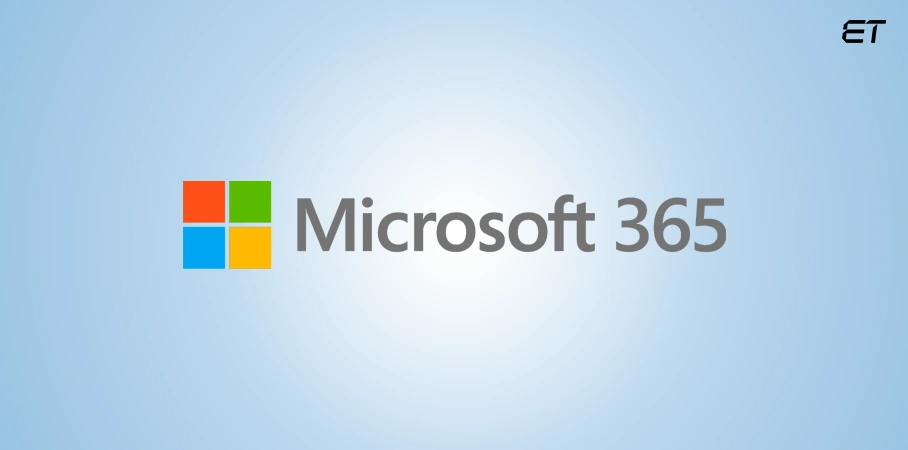
Microsoft 365 (formerly Office 365) is one of the examples of business software. It is a cloud-based productivity and collaboration suite offering essential business applications like Word, Excel, PowerPoint, Outlook, Teams, OneDrive, and SharePoint. It is used by businesses, educational institutions, and government agencies worldwide to enhance workplace efficiency.
Unlike traditional Microsoft Office software, Microsoft 365 offers a subscription-based model, ensuring users always have the latest updates and features. One of its biggest advantages is cloud connectivity, allowing employees to work remotely, collaborate on documents in real time, and store data securely on OneDrive.
The introduction of Microsoft Teams has made it a preferred example of business software for remote and hybrid workplaces, as it provides a unified communication platform for video calls, messaging, and document sharing. Additionally, Microsoft 365 offers AI-powered productivity tools, such as grammar suggestions in Word, smart data analysis in Excel, and automated email filtering in Outlook.
Features of Microsoft 365
- Microsoft 365 enables multiple users to edit documents simultaneously.
- You can securely store and share files across teams.
- It protects your business data from cyber threats.
- Microsoft 365 enables video conferencing and chat for remote collaboration.
- Its AI-featured smart suggestions assist you in writing, analytics, and reporting.
Why Should You Use It?
- It boosts your workplace productivity with seamless collaboration.
- Microsoft 365 provides cloud storage for secure document sharing.
- It enhances cybersecurity with enterprise-grade security protocols.
- It is suitable for businesses of all sizes, from startups to large corporations.
Industries Using Microsoft 365:
- Corporate Enterprises
- Educational Institutions
- Legal and Financial Firms
- Government Agencies
4. Google Workspace
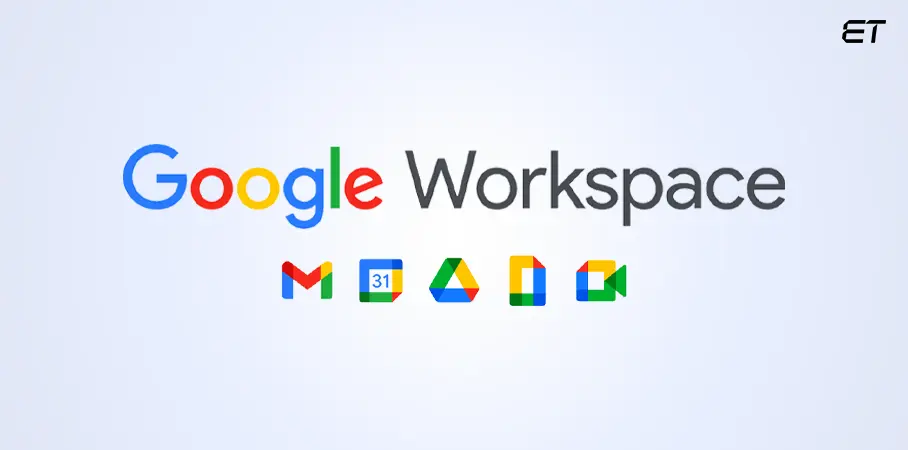
Google Workspace (also known as G Suite) is a cloud-based example of business software suite developed by Google. It offers you tools like Gmail, Google Drive, Docs, Sheets, Meet, and Calendar. It helps your remote teams collaborate effortlessly by allowing you to work on documents, spreadsheets, and presentations in real-time.
One of its main advantages is that it allows you to integrate seamlessly with other marketing automation software and business applications, including Slack, Zoom, Trello, and CRM software like HubSpot and Salesforce. Because all files are stored in Google Drive, you can access and edit their documents from any device, anywhere in the world.
It also offers AI-powered features like Smart Compose, automated meeting scheduling, and intelligent data analysis. Security is a top priority, with built-in encryption, multi-factor authentication, and access control policies ensuring that your data remains protected.
Features of Google Workspace
- Google Workspace allows you to access files from anywhere.
- You can edit documents, spreadsheets, and presentations in real-time.
- It supports large virtual meetings.
- It enhances productivity with automated recommendations.
- It protects your sensitive business data.
Why Should You Use It?
- Google Workspace enhances collaboration for your remote and hybrid teams.
- It reduces IT infrastructure costs by offering a cloud-based solution.
- Google Workspace works seamlessly with multiple third-party business apps.
- It is used by freelancers, startups, and multinational corporations.
Industries Using Google Workspace:
- Startups and Tech Companies
- Marketing and Media Agencies
- Healthcare and Nonprofits
- Remote Work and Freelance Professionals
5. NetSuite
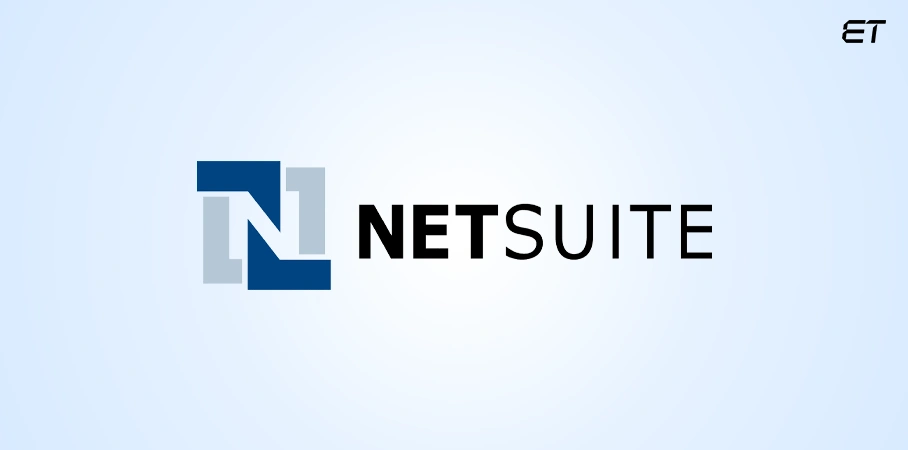
NetSuite is an example of business software that is cloud-based Enterprise Resource Planning (ERP) developed by Oracle. Leveraging this, you can manage core business processes, including financial management, inventory control, supply chain operations, human resources, and customer relationship management (CRM).
Is managing operations across multiple departments a challenging task for you? No worries! NetSuite provides you with a unified platform that integrates different functions into one system. It allows you to have real-time visibility into your operations and financial performance. Additionally, NetSuite serves as an inventory management software that tracks stock levels and manages orders, ensuring efficient product deliveries and optimal stock levels.
NetSuite’s AI-powered analytics and automation features help you make data-driven decisions, automate repetitive tasks, and improve overall operational efficiency.
Features of NetSuite
- It manages revenue, expenses, and reporting.
- You can track stock levels and vendor relationships with NetSuite.
- It provides you with AI-driven insights for decision-making.
- It helps you manage employees and process payroll.
- NetSuite is suitable for multinational companies.
Why Should You Use It?
- It unifies business processes in a single platform.
- Improves financial transparency with real-time reporting.
- Reduces operational costs through automation.
- It is ideal for medium- to large-sized enterprises.
Industries Using NetSuite:
- Manufacturing and Supply Chain
- Retail and E-commerce
- Healthcare and Pharmaceuticals
- Financial Services
6. HubSpot
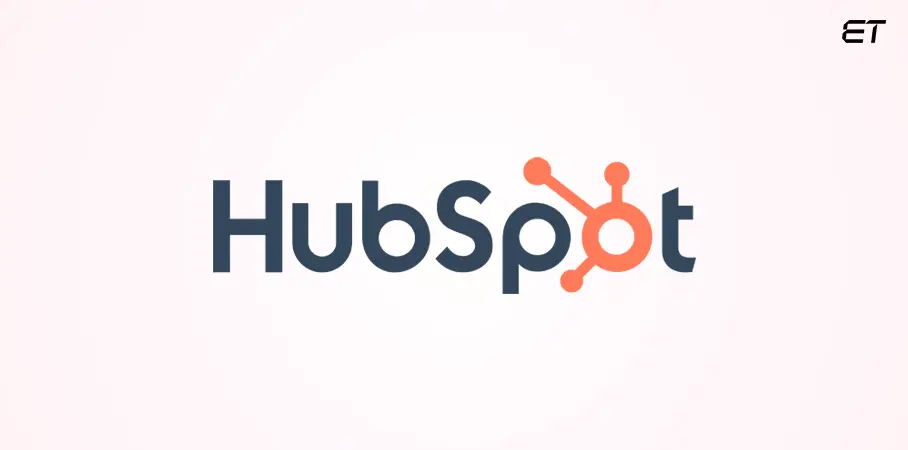
HubSpot is also an example of business software. It is a Customer Relationship Management (CRM) software that helps you manage your sales, marketing, customer service, and content management in one integrated platform. It is known for its user-friendly interface and powerful automation capabilities, making it an excellent choice if you are looking to scale your operations without a steep learning curve. As marketing automation software, HubSpot automates and measures various marketing tasks and workflows, enabling you to improve operational efficiency and drive revenue growth.
HubSpot provides a free CRM with essential features, but its premium plans offer advanced automation, AI-driven analytics, and integrations with over 1,000 third-party applications. You can use HubSpot to generate leads, automate email marketing, track your customer interactions, and streamline your sales processes.
One of the biggest advantages of this example of business software is its all-in-one approach. It eliminates the need for you to use multiple tools to manage different aspects of your marketing and customer relationships. With built-in SEO tools, lead tracking, and personalized marketing automation, HubSpot helps you to boost engagement and conversions effectively.
Features of HubSpot
- You can capture and nurture your leads automatically with HubSpot.
- You can send targeted campaigns to your customers.
- HubSpot helps you track deal progress.
- With HubSpot, you can manage customer queries efficiently.
- It lets you monitor your marketing success.
Why Should You Use It?
- It enhances your sales and marketing alignment.
- Improves your customer experience through automation.
- Reduces manual marketing efforts, increasing efficiency.
- It is ideal for startups and growing businesses.
Industries Using HubSpot:
- Digital Marketing Agencies
- SaaS Companies
- Small and Medium Businesses (SMBs)
- E-commerce and Retail
7. Asana

Asana is a project and task management example of business software designed to help your teams organize, track, and manage work efficiently. Whether you’re handling small tasks or managing large-scale enterprise projects, Asana provides a clear, visual layout that allows you to collaborate in real time and ensure deadlines are met.
Unlike traditional to-do lists, Asana enables your teams to create workflows, set priorities, and automate repetitive tasks. With features like Kanban boards, Gantt charts, and AI-powered automation, you can easily track your team’s progress and identify challenges before they become major issues.
It also integrates seamlessly with other popular tools like Slack, Google Workspace, Microsoft Teams, and Trello, making it a flexible solution for your diverse work environments.
Features of Asana
- Asana helps your teams create, assign, and prioritize tasks with clear deadlines.
- It reduces your manual effort by automating repetitive project tasks.
- It provides you with visual roadmaps through Kanban boards, Gantt charts, and calendars.
- Asana enables real-time discussions within projects.
- It works seamlessly with Slack, Google Drive, Microsoft Teams, Zoom, and Trello.
Why Should You Use It?
- It improves project organization and visibility, ensuring your teams stay on track.
- It enhances your team collaboration by centralizing task assignments and updates.
- Reduces your workflow bottlenecks through automation and real-time notifications.
- It is suitable for businesses of all sizes, from startups to large enterprises with complex project needs.
Industries Using Asana:
- IT and Software Development
- Marketing and Advertising Agencies
- HR and Recruitment Teams
- Nonprofits and Government Organizations
8. Slack
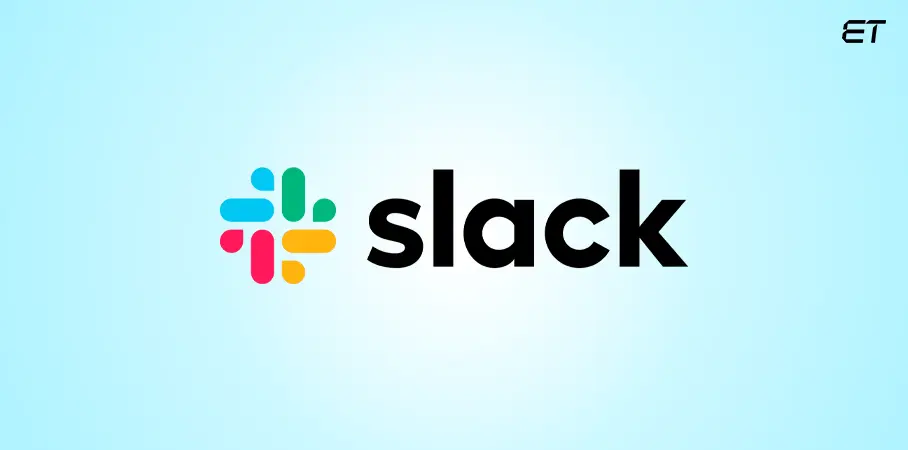
Slack is a cloud-based team communication and collaboration platform. It lets you replace traditional email with instant messaging, file sharing, and integration with business tools. It provides a centralized space for you to communicate with your team. It eliminates long email threads and allows you to make quicker decisions and project updates.
Slack organizes conversations into channels, allowing different teams, departments, or projects to have dedicated spaces for discussions. It also supports direct messaging, voice and video calls, and file sharing, making it a comprehensive solution for internal communication.
Slack is a favorite example of business software because it integrates with over 2,000 applications, including Google Drive, Microsoft 365, Zoom, Trello, and Asana. Its AI-powered search functionality makes retrieving past conversations and files easy, helping your teams stay organized.
Features of Slack
- It lets you organize conversations into channels for different teams, projects, or topics.
- Slack supports real-time document sharing and feedback.
- You can quickly find messages, files, and discussions from past conversations.
- Slack connects you with Google Drive, Microsoft Teams, Zoom, and CRM tools like Salesforce and HubSpot.
- It offers you encryption and compliance tools to protect sensitive business communications.
Why Should You Use It?
- Reduces reliance on email, making communication faster and more organized.
- It enhances your team collaboration by keeping discussions structured in dedicated channels.
- It improves your efficiency with automated workflows and reminders.
- It is ideal for remote and hybrid teams, ensuring seamless collaboration across locations.
Industries Using Slack:
- Tech Startups and Software Companies
- Creative Agencies and Design Firms
- Financial Services and Consulting Firms
- Remote Teams and Freelancers
9. Zoom

Zoom is a video conferencing and communication software that has revolutionized remote work and virtual collaboration. It is one of the most used and best examples of business software for video conferencing. It allows you to conduct high-quality virtual meetings, webinars, and training sessions, making it an essential tool for global teams.
Zoom provides HD video and audio conferencing and features like screen sharing, chat, breakout rooms, and AI-powered transcriptions. It supports up to 1,000 participants in a single meeting. It is ideal for corporate meetings, online events, and virtual conferences.
Zoom has also expanded its offerings to include:
- Zoom Phone (a cloud-based phone system)
- Zoom Rooms (conference room solutions)
- Zoom Events (virtual event hosting)
Its end-to-end encryption and enterprise security features make it a trusted platform for business communication.
Features of Zoom
- Zoom can support crystal-clear video calls with up to 1,000 participants in a single session.
- It enables you to enhance your presentations and branding in professional meetings.
- It allows for group discussions within larger meetings.
- Zoom automatically generates meeting notes and captions.
- It ensures safe and private virtual communication.
Why Should You Use It?
- It enables remote work and hybrid collaboration with high-quality virtual meetings.
- Improves engagement in online presentations, training, and customer interactions.
- Reduces travel costs by replacing physical meetings with virtual alternatives.
- It integrates seamlessly with business tools like Google Calendar, Outlook, and Slack.
Industries Using Zoom:
- IT and Technology Firms
- Education and Online Learning Platforms
- Healthcare and Telemedicine Services
- Legal and Financial Services
10. FreshBooks
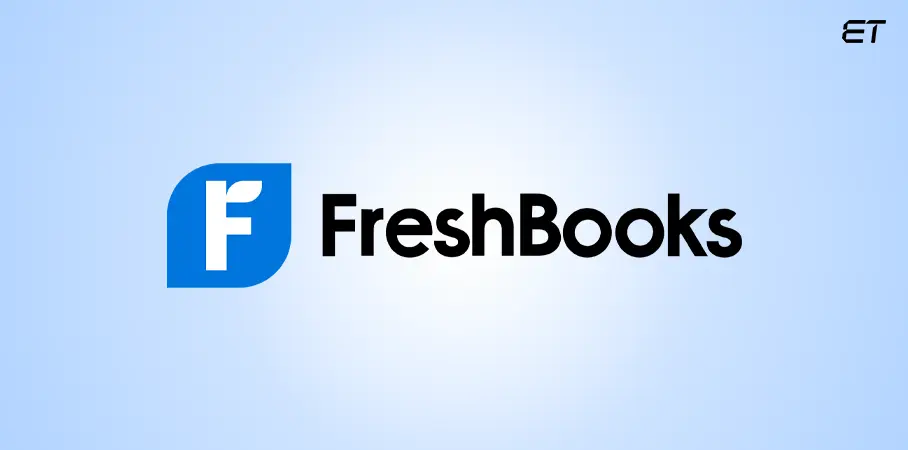
FreshBooks is a cloud-based accounting software tailored for freelancers, small businesses, and service-based industries. It provides an intuitive and automated solution for managing your invoicing, expenses, time tracking, and financial reporting.
Unlike traditional accounting software, FreshBooks focuses on ease of use, making it an excellent choice if you don’t have a dedicated finance team. It automates your repetitive accounting tasks, such as recurring invoices, payment reminders, and tax calculations. This example of business software allows you to focus on growth rather than manual bookkeeping.
FreshBooks can also be integrated with various payment gateways, such as PayPal, ensuring smooth transactions for you. It provides real-time financial insights through dashboards and reports, helping you track your profitability, cash flow, and financial health.
Features of FreshBooks
- FreshBooks creates professional invoices and sends you automated payment reminders.
- It monitors your business expenses and tracks billable hours for your clients.
- It generates profit and loss statements, balance sheets, and tax reports.
- FreshBooks is ideal if you have global clients.
- It integrates with PayPal, Stripe, and credit card payments for easy transactions.
Why Should You Use It?
- It simplifies bookkeeping and financial management for you without dedicated accounting teams.
- Reduces manual data entry by automating invoicing, expense tracking, and reporting.
- Ensures smooth tax preparation with detailed financial summaries.
- It is perfect for freelancers, small business owners, and service-based professionals who need an easy-to-use accounting solution.
Industries Using FreshBooks:
- Freelancers and Solopreneurs
- Small Business Owners
- Consulting and Legal Firms
- Creative Agencies
Connect with our experts today to build tailored business software for limitless growth.
Additional Examples of Business Software
Beyond the well-known categories like CRM and ERP, there are several examples of business software that can be incredibly beneficial for your organization. Let’s explore a few more:
1. Human Resource Management (HRM) Software
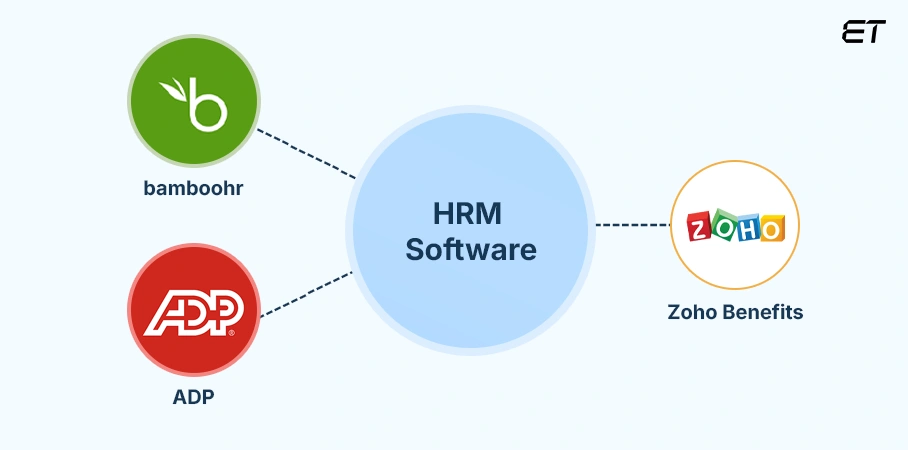
Human Resource Management (HRM) software is designed to help you manage employee data, payroll, benefits, and performance reviews. By automating routine HR tasks, HRM software not only saves time but also provides valuable analytics for better decision-making and improves employee engagement. Popular HRM tools include BambooHR, ADP, and Zoho Benefits, which offer comprehensive solutions for managing your workforce efficiently.
2. Business Intelligence (BI) Software
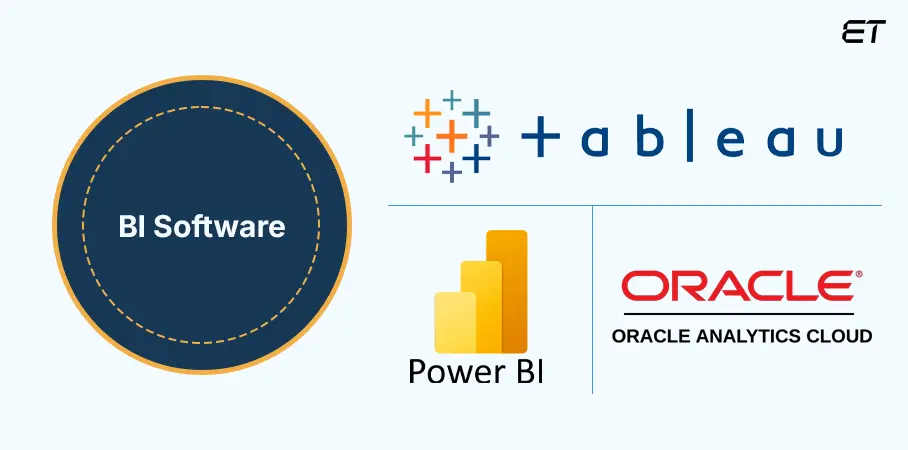
Business Intelligence (BI) software helps you analyze and visualize large amounts of data, providing real-time insights that drive informed decision-making. With BI tools, you can uncover trends, identify opportunities, and make data-driven decisions that propel your business forward. Some of the leading BI software includes Tableau, Microsoft Power BI, and Oracle Analytics Cloud, each offering powerful features to transform your data into actionable intelligence.
3. Supply Chain Management (SCM) Software
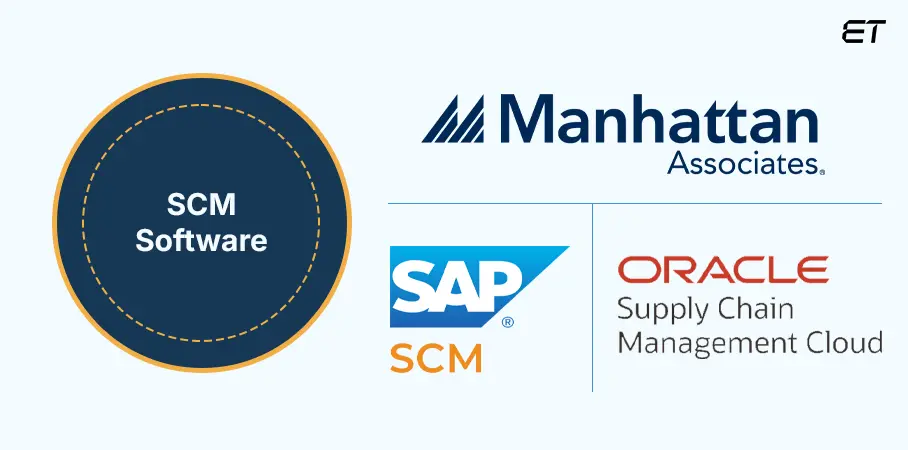
Supply Chain Management (SCM) software is essential for managing your supply chain operations, from procurement and production to inventory management and logistics. SCM software optimizes your supply chain, reduces costs, and improves customer satisfaction by ensuring timely delivery and efficient resource management. Top SCM tools like SAP SCM, Oracle SCM, and Manhattan Associates provide robust solutions to streamline your supply chain processes.
By leveraging these additional examples of business software, you can further enhance your operations, boost productivity, and achieve your business goals. Whether it’s managing your workforce, analyzing data, or optimizing your supply chain, the right software can give you a competitive edge in today’s dynamic business landscape.
Discover the power of application business and its types. Learn how we drive your business success!
How to Choose the Right Examples of Business Software for Your Company?
As a C-level executive, we understand how difficult it is to make the right choice in selecting the right business software. However, if you follow a structured approach and consider key factors, you can make an informed decision that enhances your operations.
Here’s a step-by-step guide to choosing the best example of business software for your company:
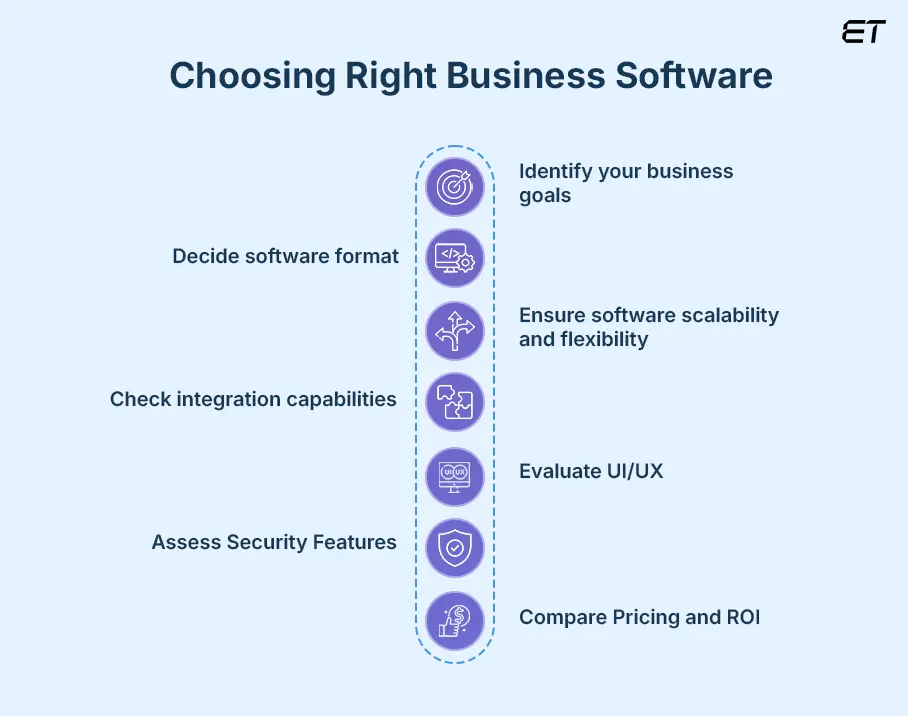
#1 Identify Your Business Needs and Goals
Before exploring software options, it’s important to clearly define what problems you’re trying to solve or what processes you want to improve. You should assess:
- What tasks or workflows need automation? (e.g., accounting, project management, CRM)
- Are you looking for better collaboration, security, or data analysis?
- Do you need a cloud-based solution for remote work flexibility?
- Are you aiming to improve customer relationships and sales tracking?
For example, Customer Relationship Management (CRM) software like Salesforce or HubSpot might be ideal if your business struggles with customer data management and sales tracking. If financial tracking and invoicing are your challenges, accounting software like QuickBooks or FreshBooks would be a better fit.
#2 Decide Between Cloud-Based and On-Premise Software
Examples of business software are typically available in two formats:
a. Cloud-Based Software (SaaS—Software as a Service)
- It is hosted online and can be accessed via your web browser.
- There is no need for expensive hardware or in-house IT maintenance.
- SaaS is suitable for remote teams and businesses that require flexibility.
Examples: Google Workspace, Zoom, Slack.
b. On-Premise Software
- It is installed and operated from the company’s local servers.
- It has a higher level of security and control over data.
- On-premises software requires IT infrastructure and maintenance.
Examples: Traditional enterprise ERP systems like SAP or Oracle ERP.
On-premise software might be the best choice if your business requires high security and full data control. However, cloud-based solutions are often the better option if you need scalability, remote access, and lower upfront costs.
#3 Ensure Software Scalability and Flexibility
Your business may be small today but will grow significantly in the coming years. That’s why choosing software that can scale with your business needs without requiring a complete system overhaul is essential. You need to look for the following aspects of your business software:
- Can the software handle increased users, data, and workload over time?
- Does it offer customization and add-on features to support growth?
- Can it integrate with other essential business applications?
For example, NetSuite ERP is highly scalable, making it a preferred choice for growing enterprises that require financial management, supply chain tracking, and global business support.
#4 Check Software Integration Capabilities
You often need to rely on multiple tools to run different operations. Instead of switching between platforms manually, it’s best to choose software that integrates seamlessly with your existing tools. Like:
- CRM software like HubSpot integrates with Gmail, Outlook, and Slack.
- Project management tools like Asana connect with Google Drive, Trello, and Microsoft Teams.
- Accounting software like QuickBooks syncs with payment gateways like PayPal and Stripe.
Choosing integrated software ensures:
- Smooth workflow automation across your different departments.
- Reduced manual data entry and errors.
- Better collaboration between your teams.
#5 Evaluate User-Friendliness and Training Requirements
The best software is only useful if your team can actually use it effectively. Some examples of business software solutions come with complex interfaces that require technical expertise and extensive training, while others are designed to be user-friendly and intuitive.
This is how you assess usability:
- Request free trials or demo versions before purchasing.
- Check if your employees can easily navigate the dashboard and features.
- Consider the learning curve and available training resources (e.g., online tutorials, customer support).
For example, Microsoft 365 and Google Workspace are known for their easy-to-use interfaces, while ERP solutions like NetSuite may require specialized training to utilize their full potential.
#6 Assess Security Features and Compliance
Data security is a top priority. Whether you’re handling customer information, financial data, or internal communications, the software you choose must offer robust security measures to protect sensitive information. The aspects you need to consider are:
- Does the software have multi-factor authentication (MFA) for added security?
- Is data encrypted both during storage and transmission?
- Does it comply with industry regulations like GDPR, HIPAA, and PCI-DSS?
For instance, Zoom offers end-to-end encryption for secure video meetings, and Salesforce provides advanced security controls for protecting customer data.
If your business operates in industries like healthcare, finance, or legal services, compliance with regulatory standards is essential when choosing software.
#7 Compare Pricing and ROI (Return on Investment)
While cost is a key factor, it shouldn’t be the only deciding element. Instead of focusing solely on the cheapest option, consider the value and ROI the software provides.
Some of the factors you should consider are:
- Is there a one-time purchase cost, or is it a monthly/annual subscription?
- Does it include hidden costs like maintenance, updates, and customer support?
- Will the software increase your efficiency, reduce errors, or save time in the long run?
For example, investing in Salesforce CRM might seem expensive initially. Still, if it helps you close more deals, retain customers, and improve your sales efficiency, the long-term benefits outweigh the cost.
Bonus: Many software providers offer tiered pricing plans, so you can start with a basic plan and upgrade as needed.
Let’s craft your perfect business software solution and build smarter business together!
Wrapping Up!
The right business software is a strategic asset that can streamline your operations, boost productivity, and drive growth. Whether you need better financial management, seamless collaboration, or improved customer relationships, selecting software that aligns with your goals is crucial.
With so many options available, take the time to evaluate your business needs, prioritize scalability, and consider integration capabilities. A well-informed decision will not only save time and costs but also enhance your efficiency and competitiveness in the long run.
Ready to upgrade your business operations? Explore your options, test different software, and invest in the one that empowers your business to thrive!
Empower your business with the right software tailored to your needs and build scalable solutions!
Frequently Asked Questions
1. What is Business Software and Examples?
Business software refers to computer programs that are specifically designed to help businesses like you streamline operations, automate tasks, and improve efficiency. These tools enable you to manage finances, enhance customer relationships, track projects, and optimize your productivity.
Examples of business software are:
- Customer Relationship Management (CRM) Software: e.g., Salesforce, HubSpot
- Enterprise Resource Planning (ERP) Software: e.g., NetSuite, SAP
- Accounting Software: e.g., QuickBooks, FreshBooks
- Project Management Tools: e.g., Asana, Trello
- Communication and Collaboration Software: e.g., Slack, Zoom
2. What Are 10 Examples of System Software?
10 examples of system software are:
- Operating Systems: e.g., Windows, macOS, Linux
- Device Drivers
- Firmware: e.g., BIOS in computers
- Utility Programs
- Shells and Command-Line Interfaces: e.g., Bash, PowerShell
- File Management Software: e.g., Windows File Explorer
- Network Software
- Database Management Systems (DBMS): e.g., MySQL, PostgreSQL)
- Backup and Recovery Software: e.g., Acronis, Veeam
- Virtualization Software: e.g., VMware, VirtualBox
3. What Are 10 Examples of Application Software?
10 examples of application software are:
- Word Processors: e.g., Microsoft Word, Google Docs
- Spreadsheets: e.g., Microsoft Excel, Google Sheets
- Web Browsers: e.g., Google Chrome, Mozilla Firefox
- Email Clients: e.g., Microsoft Outlook, Mozilla Thunderbird
- Multimedia Players: e.g., VLC Media Player, Windows Media Player
- Graphic Design Software: e.g., Adobe Photoshop, Canva
- Presentation Software: e.g., Microsoft PowerPoint, Prezi
- Database Management Software: e.g., MySQL, Microsoft Access
- Project Management Tools: e.g., Trello, Asana
- Accounting Software: e.g., QuickBooks, Xero
4. What Are the 10 Types of Software in a Computer?
10 types of software in a computer are:
- System Software: e.g., Windows, Linux).
- Application Software: e.g., Microsoft Office, Zoom
- Middleware: e.g., Oracle Fusion Middleware
- Programming Software: e.g., Python, Java, C++
- Database Software: e.g., MySQL, MongoDB
- Networking Software: e.g., Cisco Packet Tracer, Wireshark
- Security Software: e.g., Norton Antivirus, Bitdefender
- Utility Software: e.g., CCleaner, Disk Defragmenter
- Firmware: e.g., BIOS, UEFI
- Enterprise Software: e.g., SAP, NetSuite



